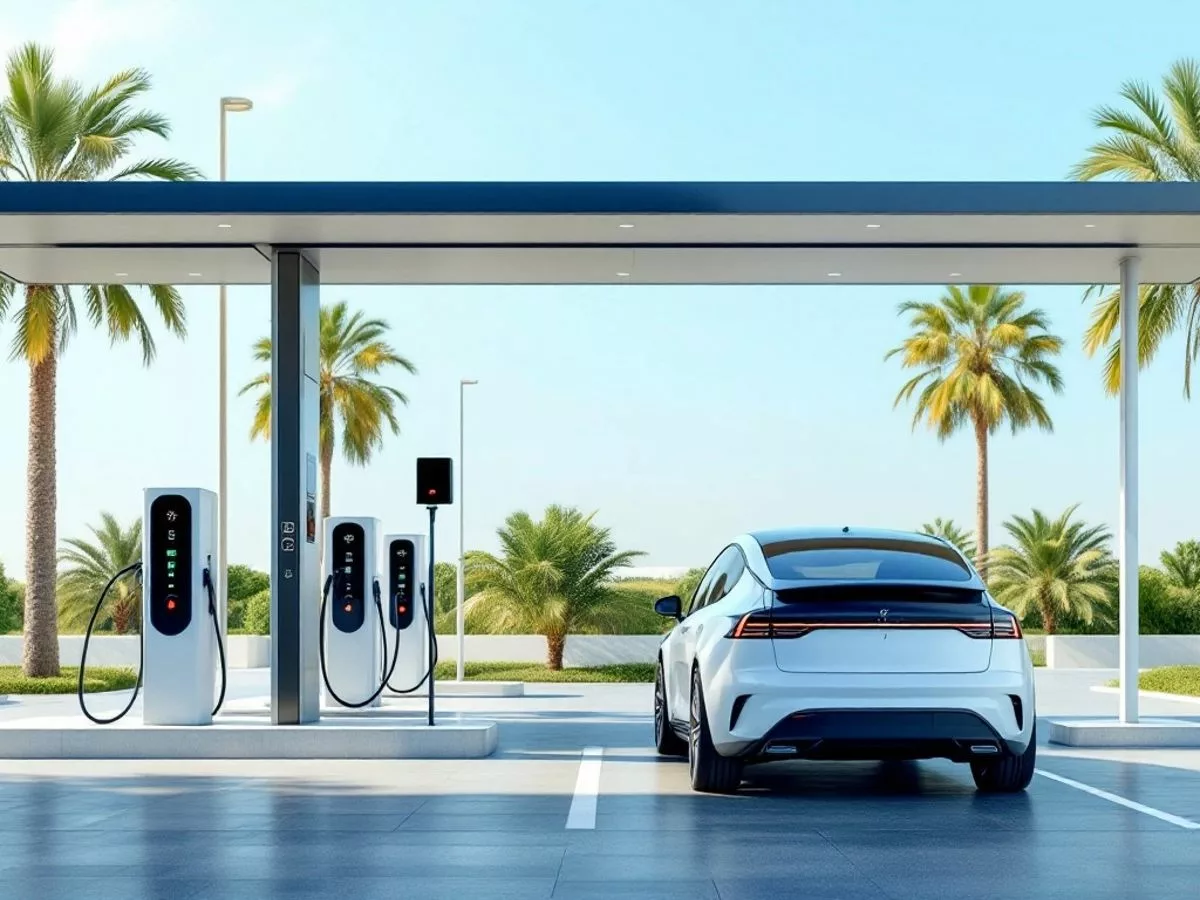
The UAE government has announced a new cabinet resolution that establishes a unified pricing structure for charging electric vehicles (EVs) across the country. This initiative aims to standardize charging fees and enhance the EV infrastructure, making it more accessible and efficient for users.
Key Takeaways
- New charging fees set at a minimum of Dh1.20 plus VAT per kWh for express charging and Dh0.70 plus VAT for slow charging.
- The resolution will take effect 60 days after its publication, starting September 6.
- The government retains the authority to amend these fees as necessary.
- The move is part of broader efforts to promote sustainable transportation in the UAE.
New Fee Structure
The new fee structure, outlined in Cabinet Resolution No. 81, specifies the following:
| Charging Type | Minimum Fee (per kWh) | VAT | Total Minimum Fee |
|---|---|---|---|
| Express | Dh1.20 | Yes | Dh1.20 + VAT |
| Slow | Dh0.70 | Yes | Dh0.70 + VAT |
This resolution is expected to regulate the utility of electric vehicle services, ensuring that users pay a fair price for charging based on the type of service they choose.
Rationale Behind the Decision
The introduction of these fees comes as part of the UAE’s strategy to standardize the EV charging infrastructure, which has seen inconsistent pricing across various service providers. Currently, some charging stations offer free services, leading to overcrowding and inefficiencies.
Legal expert Abdulrahman Al Nabhan noted that the decision is a significant step towards regulating the EV market. He emphasized that the fees will depend on the type of charging service utilized, which will help streamline the charging process.
Industry Reactions
The response from industry experts and legal professionals has been largely positive. Mostafa Hegab, a legal counsel, stated that this resolution sets a precedent for regulating electric vehicle services and encourages investment in renewable energy sources. He believes that while some users may have to start paying for previously free services, the overall cost will still be lower than traditional fossil fuels.
Benefits for EV Owners
Many electric vehicle owners have welcomed the new fee structure, as it is expected to reduce congestion at charging stations. Shireen M., an EV owner who frequently travels between Dubai and Abu Dhabi, expressed her support for the initiative. She noted that the previous free charging services often led to long wait times, as some users would occupy chargers longer than necessary.
"This move ensures that chargers will be available when I need them most," she said, acknowledging that while her expenses may increase, the benefits outweigh the costs.
Broader Implications
The new fee structure is part of the UAE’s larger commitment to sustainable transportation and reducing energy consumption in the transport sector by 20%. Earlier initiatives included the launch of the UAEV, the first government-owned EV charging network, which aims to install 100 charging stations nationwide. Additionally, ADNOC plans to introduce over 500 fast and superfast chargers in the coming years.
This comprehensive approach to EV infrastructure is expected to significantly boost the adoption of electric vehicles in the UAE, which has already seen a remarkable increase in EV sales, nearly quadrupling from 3.7% in 2022 to 11.3% in 2023.
As the UAE continues to invest in renewable energy and sustainable transportation, the new unified charging fees represent a crucial step towards a greener future.






